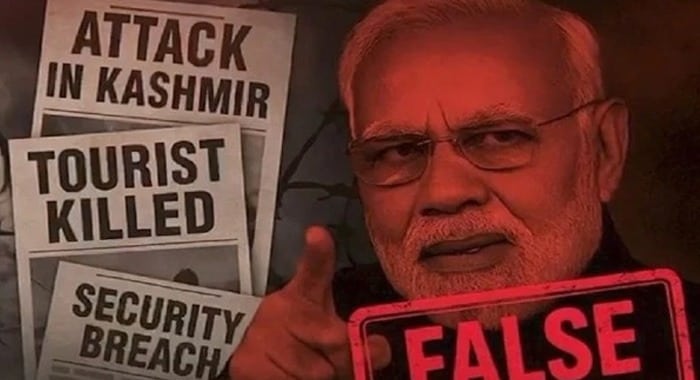ISLAMABAD: The Pahalgam incident, increasingly seen as a false flag operation, has sparked global criticism of the Indian government, with the BBC becoming the latest outlet to challenge New Delhi’s official narrative. The international broadcaster has raised serious questions about glaring security failures, contradictory claims, and the Indian intelligence establishment’s role in the deadly attack.
Sources report that criticism of Prime Minister Narendra Modi, the Indian Army, and intelligence agencies is mounting, with BBC’s investigative piece pointing out how no police or military personnel were present at the site—despite the CRPF and Rashtriya Rifles camps being just a few kilometres away. Shockingly, the police arrived more than an hour after the attack.
Shital Kalathia, widow of one of the victims, lashed out at visiting officials, accusing them of neglecting taxpayers while flaunting VIP vehicles. Survivors like Paras Jain confirmed the complete absence of security at the busy tourist destination.
Journalist Anuradha Bhasin questioned how attackers’ sketches and names emerged within hours, despite delayed police response. “Even after the abrogation of Article 370, such attacks continue—raising doubts about the state’s claims of normalcy,” she said.
The BBC also highlighted the absence of even a single CCTV camera at a site frequented by thousands of tourists. Defence experts say this global scrutiny, particularly from credible international media, exposes the Indian state’s failure and weakens its habitual blame game against Pakistan.
Analysts urge India to focus on fixing its internal security mechanisms rather than pushing unsubstantiated allegations. The Pahalgam attack, it appears, is backfiring as global voices increasingly question its authenticity.





